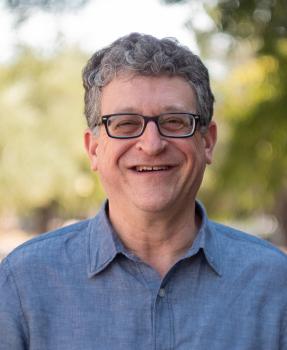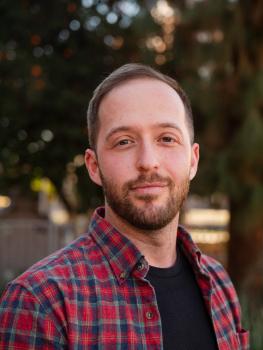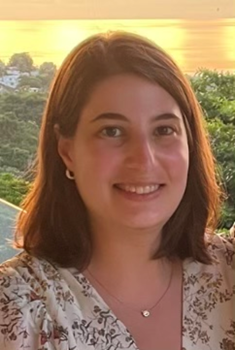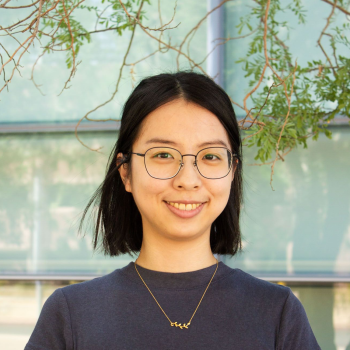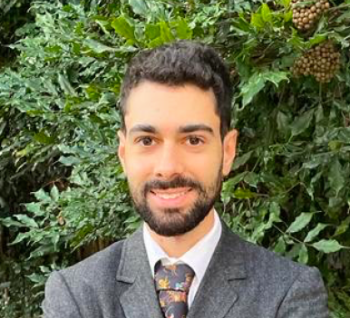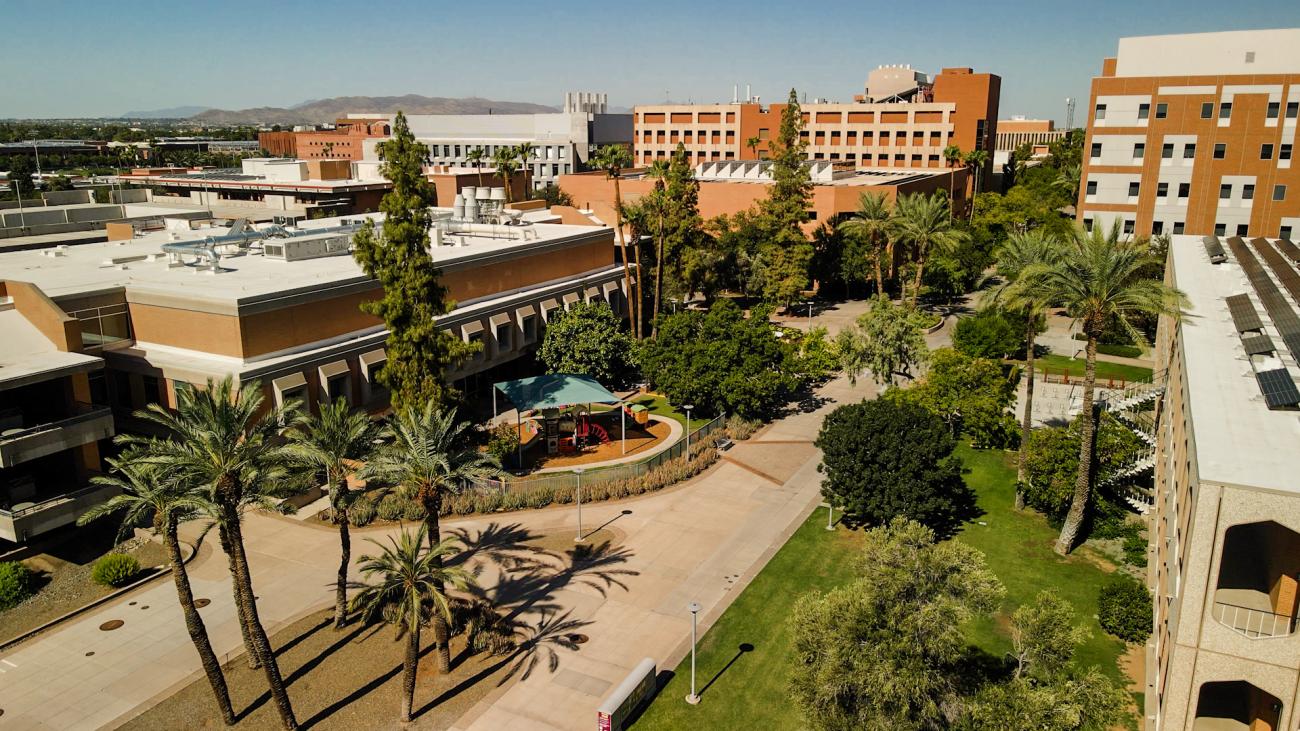
Evolution, Ecology, and Social Behavior Lab (Dr. Neuberg)

Welcome to the Neuberg Lab!
Here are a few of the questions we are currently exploring:
- Why do stereotypes and prejudices exist? What forms do they take? Why, in particular, do people possess such strong stereotypes and prejudices based on age, sex, and race? Such stereotypes and prejudices can have profound implications for how individuals are viewed and for the opportunities they have. It’s often presumed that stereotypes and prejudices people are simple, but they are not. Our research has demonstrated that the stereotypes people use to understand others are often quite complex—more complex than can be accounted for by currently dominant theoretical approaches to stereotyping and prejudice. Understanding this nuance thus has important implications both for creating stronger models of stereotypes, prejudices, and discrimination, and for reducing instances of inappropriate stereotyping and discrimination.
- The environments in which people live can vary greatly—in terms of resource availability and predictability, the presence of disease-causing pathogens, dangerous people, sex ratio (the numbers of women versus men), etc. How do such physical and social-ecological factors shape cognitions, behaviors, culture, and health?
- What determines which places people travel and move to? Our environmental aesthetic preferences—those places we find ugly or beautiful—might track what ancestrally would have been safe from danger and resource abundant environments. How do evolved preferences lead people to vacation and fantasize about certain places? Do ancestrally evolved environmental aesthetic preferences still regulate decision-making in the modern world
- Integrating our interests in prejudices and ecologies, we are currently investigating the effects of the spread of COVID-19 on prejudices against a range of groups and the effects of those prejudices on the well-being and behaviors of those so targeted.
- How do social goals (e.g., to protect oneself from dangerous people or contagious illnesses, to find a romantic partner, to care for family and children) shape how we perceive and understand the world around us?
- People who experience discrimination or stigmatization are more likely to be overweight or obese, with health implications including hypertension, coronary heart disease, diabetes, and certain cancers. Complementing existing approaches to obesity, and grounded in the fact that fat storage is an ancestral adaptation for mitigating against the threat of future caloric scarcity, we propose that people store excess fat when physical and social-ecological cues suggest that calories may not be available in the future (e.g., due to interpersonal or intergroup conflict). We are investigating a range of predictions, including that people who are stigmatized or targeted for discrimination store excess fat—especially if they perceive themselves as vulnerable due to having small, weak, and/or unstable social support networks.
Our approach is an integrative one, pulling together theory and findings from social psychology, behavioral ecology, and evolutionary biology to explore fundamental questions of social cognition and behavior.
Interested in Joining Us?
CONDUCT RESEARCH AND EARN COURSE CREDIT!!
We seek motivated, conscientious, curious, and enthusiastic research assistants to help us investigate research questions like those above. Learn first-hand about research and gain valuable experience for graduate school and the job market. You will run studies and collect data, read the scientific research literature, and perform other project-related tasks while learning about a wide range of topics in social and evolutionary psychology.
In addition to research-related activities during the week, and participation in smaller project meetings, all undergraduate and graduate students working in the lab join Professor Neuberg every Friday afternoon for a two-hour research meeting. During this time, we review the week’s activities, generate new research ideas, design new studies, bring to the group hot-off-the-presses data from studies just completed, discuss new findings in social and evolutionary psychology, and/or relate our research to events in the broader world.
We encourage active participation by undergrads and grads alike—the livelier, the better. The vast majority of undergraduate students who work in this lab go on to graduate school—and some are now even running their own lab meetings as professors!
Lab Director and Principal Investigator:
Steven L. Neuberg, PhD, Foundation Professor and Chair, Department of Psychology
Professor Neuberg earned his undergraduate degree at Cornell University, his graduate degrees at Carnegie Mellon University, and had a NATO Fellowship year at the University of Waterloo, Canada. His research has been published in outlets such as Proceedings of the National Academy of Sciences, Psychological Review, Advances in Experimental Social Psychology, Journal of Personality and Social Psychology, Psychological Science, Handbook of Social Psychology, and Perspectives on Psychological Science; has been supported by the National Science Foundation, National Institute of Health, and Army Research Institute; has received the Gordon Allport Intergroup Relations Prize and the Daniel M. Wegner Theoretical Innovation Prize; and is an elected Fellow of the American Association for the Advancement of Science. He is the recipient of several ASU teaching honors, including the Outstanding Doctoral Mentor Award and the CLAS Outstanding Teaching Award, recently served as Chair of the Department of Psychology, and directs the Department’s Psych for Life® enterprise. Curriculum Vitae.
Postdoctoral Fellow
Michael Barlev, PhD, Assistant Research Professor, Department of Psychology
While my interests are wide ranging, much of my research has focused on the psychology of beliefs. I explore questions such as how beliefs are mentally represented, what factors make beliefs more or less likely to originate and spread in a population, personal experiences as a route to belief, and the “deep” social functions beliefs serve. My research sheds light on the role beliefs play in our private and social lives, and has wide-ranging implications both to basic theory and changing problematic beliefs.
I completed my PhD in Psychological & Brain Sciences at the University of California, Santa Barbara (2018). I have published in some of the top journals in my field, such as American Psychologist, Psychological Review, and Perspectives on Psychological Sciences. My research has been supported by the Templeton World Charity Foundation and the John Templeton Foundation. I have received the New Investigator Award from the Human Behavior and Evolution Society. I take an interdisciplinary approach to my research, combining foundational insights and tools from social psychology, computational cognitive science, adaptationist evolutionary biology, cultural evolution, and the humanities.
Doctoral Students
Amanda Kirsch, Doctoral Student, Department of Psychology
Kirsch’s research interests fall under the umbrella of evolutionary psychology, and currently includes questions about familial aggression and place preferences. Regarding familial aggression, Amanda looks at how sex differences in aggressive behaviors differ when directed at siblings compared to those outside of the family. She is also interested in how trends and moral judgments of sibling aggression differ cross-culturally. Regarding place preferences, she examines how environmental aesthetics relate to migration and tourism decision making and why people are motivated to become tourists more broadly. Amanda earned her B.A. in Biology from Colby College in Waterville, Maine and her M.A. from ASU in 2021. Advisors: Neuberg and Kenrick.
Tiffany Chin, Doctoral Student, Department of Psychology
Chin’s research interests focus on applying evolutionary frameworks to understand culture, social cognition, and behavioral change. She is currently focused on investigating social influence on individuals’ life history strategies, applying an evolutionary approach to promote sustainability, and related areas. Tiffany earned her B.A. at the University of California, Irvine in Irvine, California. Advisor: Neuberg.
Bernardo Ubaldo Seixas, Doctoral Student, Department of Psychology
Bernardo’s research focuses on the evolutionary psychology of emotions, with a particular interest in how emotional processes shape social interaction. He also explores personality and individual differences, seeking to understand the genetic and environmental factors that contribute to variation in emotional and behavioral responses. Additionally, his work examines the mechanisms underlying cooperation, investigating how evolutionary pressures have influenced collaborative behaviors across diverse contexts. He earned his B.S. in Psychology and Anthropology from The University of New Mexico and his M.A. in Psychology from the University of Colorado. Advisors: Neuberg and Aktipis.
Lab alums: where are they now?
Former graduate students
- Ahra Ko, PhD, Research Project Manager, Wharton School of the University of Pennsylvania
- Cari M. Pick, PhD, Postdoctoral Fellow, Environmental Defense Fund
- Jaimie Arona Krems, PhD, Assistant Professor, UCLA
- Keelah Williams, PhD, Associate Professor, Hamilton College
- Allison Varley, PhD, User Experience Researcher
- Oliver Sng, PhD, Assistant Professor, University of California, Irvine
- Gabrielle Filip-Crawford, PhD, Research Manager, Benefits Data Trust
- Rebecca Neel, PhD, Associate Professor, University of Toronto
- Jessica Li, PhD, Professor, University of Kansas
- Angela Pirlott, PhD, Associate Professor, Saint Xavier University
- Anna Berlin Tamayo, PhD, User Experience Researcher, Microsoft
- Jenessa Shapiro, PhD, Associate Professor, UCLA (deceased)
- Terri Asher Hardison, PhD, private enterprise
- Cathy Cottrell, PhD, Associate Professor, New College of Florida
- D. Vaughn Becker, PhD, Associate Professor, Arizona State University Polytechnic campus
- Jon Maner, PhD, Professor, Florida State University
- Jeremy Biesanz, PhD, Associate Professor, University of British Columbia
- Dylan Smith, PhD, Professor, SUNY-Stony Brook Medical School
- T. Nicole Judice-Campbell, PhD, Associate Professor and Dean, University of Oklahoma
- Jason T. Newsom, PhD, Professor, Portland State University
Former undergraduate honors students/research assistants now in relevant fields: (alphabetical by last name)
- Zach Airington (Doctoral student, Tulane University)
- Beth Altringer Eagle (Ph.D., Cambridge University; Professor of Practice and Executive Director of MADE, Brown University; Faculty Associate, Rhode Island School of Design
- G. Oscar Anderson (former Research Analyst, American Association of Retired People; now in nursing school)
- Cora Baron (Doctoral student, University of California, Santa Barbara)
- Eve Barton (Doctoral student, Brigham Young University)
- Benjamin Blankenship (Ph.D., University of Michigan); Assistant Professor, James Madison University
- Ayesha Boyce (Ph.D. University of Illinois at Urbana-Champaign; Associate Professor, Arizona State University)
- Krystina Boyd-Frenkel (doctoral student, University of California, Irvine)
- Corey Cook (Ph.D., U. Florida; Associate Professor, Pacific Lutheran University)
- Christian Cornelius (M.D., University of Arizona College of Medicine - Tucson; Assistant Professor, University of Arizona College of Medicine)
- Andrew Delton (Ph.D., UC, Santa Barbara; Associate Professor, Stony Brook University)
- Shelli Dubbs (Ph.D., University of Groningen; Adjunct Professor, Benedictine University)
- Maggie Evavold (J.D., William Mitchell College of Law; Associate Attorney at Gregerson, Rosow, Johnson, & Nilan Ltd.)
- Benjamin Gelbart (doctoral student, University of California, Santa Barbara)
- Laura Hanish (Ph.D., University of Illinois, Chicago; Professor, Arizona State University)
- Thomas Hansen (Ph.D., University of Pittsburgh; Chief operations Officer at Arntzen de Besche, Norway)
- Marcus Harris (doctoral student, University of Connecticut)
- Jonna Hoffman (J.D., University of California, Los Angeles; her honors thesis was published with related research in Personality and Social Psychology Bulletin; Attorney)
- Catherine Kalina, Make A Wish Foundation
- Christopher Jenkins (Ph.D., University of New Mexico; Data Scientist at Instagram)
- Jennifer Jordan (Ph.D., Yale University; Professor, IMD Business School)
- Andreana Kenrick (Ph.D. Princeton University; Facebook)
- Zoe Kinias (Ph.D., University of California, Santa Barbara; Associate Professor, Western University, Canada)
- Kody Manke (Ph.D., Stanford University; Assistant Professor, Carnegie Mellon University)
- Madeline Mayer (MSW, University of Southern California; J.D., ASU; Public Defender, Phoenix, AZ)
- Jay Meyers (Ph.D., University of Virginia; Vice President of Research Sciences, J.D. Power)
- Katherine Morse Gigax (M.A, George Mason; Department of Psychology award for best honors thesis; honors thesis was published in Personal Relationships; Founder, Development Corps)
- Paige Muellerleile (Ph.D., Syracuse U.; associate prof., Marshall University; deceased)
- Deborah Nahom Innes (PhD, University of Washington; Counselor and Life Coach, Scotland)
- Gbolahan (Femi) Olanubi (PhD., University of California, Los Angeles; Senior UX Researcher, Google)
- Tatiana Orozco (Ph.D., University of Florida; Healthcare Research Analyst, Gresham Smith)
- Kim-Chi Pham (doctoral student, University of Colorado, Boulder)
- Cory Platts (doctoral student, University of Rochester)
- Kailee Richner (doctoral student, University of Nebraska—Lincoln)
- Megan Ringel (Ph.D., University of California, Irvine; Assistant Professor, St. Edwards University)
- Tess Robertson (Ph.D., University of California, Santa Barbara; Associate Professor, Stony Brook University)
- Kaelyn Sabree (doctoral student, University of Michigan)
- Denise Sekaquaptewa (Ph.D., Ohio State University; Professor, University of Michigan)
- Jessica Shropshire (Ph.D., University of California, Los Angeles; Research Associate, Cornell University)
- Arielle Silverman (Ph.D. University of Colorado—Boulder; Director of Research, American Foundation for the Blind)
- Kristopher Smith (PhD., University of Pennsylvania; Postdoctoral Fellow, Washington State University)
- Zak Tormala (Ph.D., Ohio State University; Professor, Stanford University)
- Matthew Trujillo (Ph.D., Princeton University; Associate Director of Strategic Initiatives at Catalyst California)
- Joshua Tybur (Ph.D., University of New Mexico; Professor, Vrij Universiteit Amsterdam, Netherlands)
- Ruth Warner (Ph.D., University of Kansas; Associate Professor., St. Louis University)
- Shelby Weathers (doctoral student, University of Pennsylvania)
- Jonathan Weaver (Ph.D., University of South Florida; Associate Professor, Michigan State University)
Select Publications
Below are a sample of recent publications from Dr. Neuberg's research and lab. A more complete listing may be found in Dr. Neuberg's curriculum vitae. * = Students at time project began
2023
Lim, J. A., Li, N. P., Manesi, Z., Neuberg, S. L., van Vugt, M., Meltzer, A., & Tan., K. (2023). Desire for social status affects marital and reproductive attitudes: A life history mismatch perspective. Current Research in Ecological and Social Psychology, 100125. https://doi.org/10.1016/j.cresp.2023.100125
*Ko, A., Suh, E. M., Shin, J., & Neuberg, S. L. (2023). Functionally calibrating life satisfaction: The case of mating motives and self-perceived mate value. Journal of Happiness Studies, 24, 651–675.). https://doi.org/10.1007/s10902-022-00615-1
Tan, K., Li, N. P., Meltzer, A. L., Chin, J. L. J., Tan, L. K. L., Lim, A. J., Neuberg, S. L., & van Vugt, M. (2022). Effects of economic uncertainty and socioeconomic status on reproductive timing: A life history approach. Current Research in Ecological and Social Psychology, 3, 10040. https://doi.org/10.1016/j.cresp.2022.100040
2022
*Pick, C. M., & Neuberg, S. L. (2022). Beyond observation: Manipulating circumstances to detect affordances and infer traits. Personality and Social Psychology Review, 26, 160–179. https://doi.org/10.1177/10888683221076688. [Winner of the 2022 Society of Personality and Social Psychology Student Publication Award]
Barlev, M., *Ko, A., Krems, J. A., & Neuberg, S. L. (2021). Weight location moderates weight-based self-devaluation and perceived social devaluation in women. Social Psychological and Personality Science, 19485506211060724. https://journals.sagepub.com/doi/10.1177/19485506211060724
2021
*Krems, J. A., & Neuberg, S. L. (in press). Updating long-held assumptions about fat stigma: For women, body shape plays a critical role. Social Psychological and Personality Science. https://doi.org/10.1177%2F1948550621991381
Sng, O., & Neuberg, S. L. (2021). Evolutionary cultural psychology. In T. Shackelford (Ed.), The SAGE handbook of evolutionary psychology (pp. 172-190). Sage: London.
2020
Siroky, D., *Filip-Crawford, G., Warner, C. M., *Berlin, A., Neuberg, S. L. (2020). Grievances and rebellion: Comparing relative deprivation and horizontal inequality. Conflict Management and Peace Science, 37, 694-715.
Neuberg, S. L., Williams, K. E. G., Sng, O., *Pick, C. M., Neel, R., Krems, J. A., & Pirlott, A. G. (2020). Toward capturing the functional and nuanced nature of social stereotypes: An affordance management approach. In B. Gawronski (Ed.), Advances in Experimental Social Psychology (Vol. 62, pp. 245 - 304). Cambridge, MA: Academic Press.
*Sng, O., *Williams, K. E. G., & Neuberg, S. L. (2020). Sex-age stereotyping: Social perceivers as lay adaptationists. Evolution and Human Behavior, 41, 136-149.
2019
Becker, D. V., & Neuberg, S. L. (2019). Pushing archetypal representational systems further [response to commentaries], Psychological Inquiry, 30 103-109.
Becker, D. V., & Neuberg, S. L. (2019). Archetypes reconsidered as emergent outcomes of cognitive complexity and evolved motivational systems [target article], Psychological Inquiry, 30, 59-75.
Sundie, J. M, Beal, D. J, Neuberg, S. L., & Kenrick, D. T. (2019). Moving beyond unwise replication practices: The case of romantic motivation. Journal of Experimental Psychology: General, 148, e1.
*Williams, K. E. G., *Votruba, A. M., Neuberg, S. L., & Saks, M. J. (2019). Capital and punishment: Resource scarcity increases endorsement of the death penalty. Evolution and Human Behavior, 40, 65-73.
Cohen, A. B., & Neuberg, S. L. (2019). Religious cultures and religious conflict. In S. Kitayama & D. Cohen (Eds.), Handbook of cultural psychology (2nd ed., pp. 857-875). New York: Guilford.
2018
*Sng, O., Neuberg, S. L., Varnum, M. E. W., & Kenrick, D. T. (2018). The behavioral ecology of cultural psychological variation. Psychological Review, 125, 714-743 [Winner of the2019 Daniel M. Wegner Theoretical Innovation Prize, Society for Personality and Social Psychology]
Kenrick, D.T., Cohen, A. B., Neuberg, Sl. L., & Cialdini, R. B. (2018). The science of anti-scientific thinking. Scientific American, 319, 36-41
2017
*Sng, O., Neuberg, S. L., Varnum, M. E. W., & Kenrick, D. T. (2017). The crowded life is a slow life: Population density and life history strategy. Journal of Personality and Social Psychology, 112, 736-754.
Schaller, M., Kenrick, D.T., Neel, B., & Neuberg, S. L. (2017). Evolution and human motivation: A fundamental motives framework. Social and Personality Psychology Compass, 11. Online only, DOI: 10.1111/spc3.12319.
Neuberg, S. L., & Kenrick, A. C. (2017). Discriminating ecologies: A life history approach to stigma and health. In B. Major, J. F. Dovidio, & B. G. Link (Eds.), Handbook of stigma, discrimination and health (pp. 125-145). Oxford, UK: Oxford University Press.
2016
*Filip-Crawford, G., & Neuberg, S.L. (2016). Homosexuality and pro-gay ideology as pathogens? Implications of a disease-spread lay model for understanding anti-gay behaviors. Personality and Social Psychology Review.[Winner of the 2017 Society of Personality and Social Psychology Student Publication Award]
*Krems, J.A., Dunbar, R., Neuberg, S. (2016). Something to talk about: Are conversation sizes constrained by mental modeling abilities? Evolution and Human Behavior.
*Krems, J.A., Neel, R., Neuberg, S.L., Puts, D.A., & Kenrick, D.T. (2016, April). Women selectively guard their (desirable) mates from ovulating women. Journal of Personality and Social Psychology, 110(4), 551-573.
Neel, R., Kenrick, D.T., White, A. E., & Neuberg, S.L. (2016). Individual differences in fundamental social motives. Journal of Personality and Social Psychology, 110(6), 887-907.
Neuberg, S.L., & Schaller, M. (2016). An evolutionary threat-management approach to predudices. Current Opinion in Psychology, 7, 1-5.”
*Williams, K.E., *Sng, O., & Neuberg, S. L. (2016). Ecology-driven stereotypes override race stereotypes. Proceedings of the National Academy of Sciences,113(2), 310-315. [Honorable Mention, Gordon Allport Intergroup Relations Prize, Society for the Psychological Study of Social Issues]
*Sng, O., *Williams, K. E. G., & Neuberg, S. L. (2016). Evolutionary approaches to stereotyping and prejudice. In C. Sibley & F. K. Barlow (Eds.), Cambridge handbook of the psychology of prejudice (pp. 21-46). Cambridge, UK: Cambridge University Press.
2015
*Krems, J.A., *Filip-Crawford, G., & Neuberg, S.L., & Kenrick, D.T. (2015). Is she angry? (Sexually desirable) Women ‘see’ anger on female faces. Psychological Science, 26, 1655-1663.
2014
Neuberg, S.L., & Schaller, M. (2014). Evolutionary social cognition. M. Mikulincer & P. R. Shaver (Eds.), APA handbook of personality and social psychology (Vol. 1, Attitudes and social cognition, pp. 3 - 45, E. Borgida & J. A. Bargh [Assoc. Eds.]). Washington, D.C.: American Psychological Association.
Neuberg, S.L., Warner, C.M., *Mistler, S.A., *Berlin, A., *Hill, E. D., *Johnson, J.D., *Filip-Crawford, G., Millsap, R.E., Thomas, G., Winkelman, M., Broome, B.J., Taylor, T.J., & Schober, J. (2014). Religion and intergroup conflict: Findings from the Global Group Relations Project. Psychological Science, 25, 198-206.
*Pirlott, A.G., & Neuberg, S.L. (2014). Sexual prejudice: Avoiding unwanted sexual interest? Social Psychological and Personality Science, 5, 92-101.
2013
Neuberg, S. L., & *Sng, O. (2013). A life history theory of social perception: Stereotyping at the intersections of age, sex, and ecology (and race). Social Cognition, 31, 696–711.
*Kenrick, A. C., *Shapiro, J. R., & Neuberg, S. L. (2013). Do parental bonds break anti-fat stereotyping? Parental work-ethic ideology and disease concerns predict bias against heavy-weight children. Social Psychological and Personality Science, 4, 723-731.
*Neel, R., *Neufeld, S.L., & Neuberg, S.L. (2013). Would an obese person whistle Vivaldi? Targets of prejudice self-present to minimize the appearance of specific threats. Psychological Science, 24, 678-687.
2012
Schaller, M., & Neuberg, S.L. (2012). Danger, disease, and the nature of prejudice(s). J. Olson & M. P. Zanna (Eds.), Advances in Experimental Social Psychology (Vol. 46, pp. 1 - 55). Burlington, VT: Academic Press. [Winner, Gordon Allport Intergroup Relations Prize, Society for the Psychological Study of Social Issues]
*Neel, R., Becker, D.V., Neuberg, S.L., & Kenrick, D.T. (2012). Who expressed what emotion? Men grab anger, women grab happiness. Journal of Experimental Social Psychology, 48, 583-586.
August 2023: Congratulations to Tiffany Chin for joining the EESB lab as a new doctoral student, from the Oliver Sng lab at UC-Irvine. Welcome Tiffany!
July 2023: Congratulations to Dr. Cari Pick, former lab member, for winning a 2022 Society of Personality and Social Psychology Student Publication Award for her article, with Prof. Steve Neuberg, "Beyond observation: Manipulating circumstances to detect affordances and infer traits" in Personality and Social Psychology Review. You can read this paper here: https://journals.sagepub.com/doi/10.1177/10888683221076688
July 2023: Prof. Jaimie Krems, former lab member, has moved from Oklahoma State University to her new position at UCLA. Congrats Jaimie!
July 2023: Congratulations to Prof. Steve Neuberg for completing his term (six years!) as Chair of the ASU Department of Psychology.
June 2023: Congratulations to Dr. Ahra Ko, recent lab member, for taking a position of Research Project Manager at The Behavior Change for Good Initiative at the Wharton School, University of Pennsylvania.
May 2023: Prof. Steve Neuberg delivered a plenary address at the Human Behavior and Evolution Society annual conference, entitled “The evolutionary logics of stereotyping, stereotypes, prejudices, and discrimination.”
May 2023: Congratulations to former lab member, Prof. Keelah Williams, for her promotion—with tenure!—to Associate Professor at Hamilton College!
April 2023: Congratulations to (new Dr.) Ahra Ko, who successfully defended her dissertation, entitled “Psychological flexibility in response to changes in ecological affordances: Implications of changing COVID-19 rates on disease psychology.”
January 2023: Congratulations to Prof. Michael Barlev and his colleague, Ann Taves, for their article in the American Psychologist, entitled, “A feature-based approach to the comparative study of nonordinary experiences.” You can read the paper here: https://doi.org/10.1037/amp0000990
January 2023: Congratulations to Ahra Ko and Prof. Steve Neuberg, along with their collaborators, for publishing “Functionally calibrating life satisfaction: The case of mating motives and self-perceived mate value” in the Journal of Happiness Studies. You can read this paper here: https://doi.org/10.1007/s10902-022-00615-1
September 2022: Congratulations to Profs. Michael Barlev and Steve Neuberg, along with their colleague and project leader, Dr. Jordan Moon, for their new two-year grant, entitled “The Paradoxical Effects of Religious Fasting on Prosociality and Flourishing,” from the Templeton World Charity Foundation.
April 2022: Congratulations to Ahra Ko, who successfully defended her comprehensive examination, titled "Ecological affordances: What they are, and how people manage them, differ by life stage"
April 2022: Congratulations to Ahra Ko for winning the Faculty Women's Association Distinguished Graduate Student Award from Arizona State University, the Outstanding Research Award from ASU Graduate & Professional Student Association, and Darwyn and Marie Linder Graduate Fellowship in Social Psychology at the Arizona State University.
April 2022: Congratulations to Amanda Kirsch for winning the Teaching Excellence Award from ASU Graduate & Professional Student Association.
February 2022: Congratulations to Dr. Pick, who published a paper entitled "Beyond observation: Manipulating circumstances to detect affordances and infer traits" in Personality and Social Psychology Review. You can read this paper here: https://journals.sagepub.com/doi/10.1177/10888683221076688
February 2022: Congratulations to Dr. Michael Barlev, who published a paper entitled "A feature-based approach to the comparative study of “nonordinary” experiences" in American Psychologist. You can read this paper here: https://doi.org/10.1037/amp0000990
January 2022: Congratulations to Dr. Michael Barlev, Ahra Ko, former lab member Dr. Jaimie Krems, and Dr. Steve Neuberg, who published a paper entitled "Weight location moderates weight-based self-devaluation and perceived social devaluation in women" in Social Psychological and Personality Science. You can read this paper here: https://journals.sagepub.com/doi/10.1177/19485506211060724
November 2021: Congratulations to Dr. Michael Barlev, who published a paper entitled "Minds, bodies, spirits, and gods: Does widespread belief in disembodied beings imply that we are inherent dualists?" in Psychological Review. You can read this paper here: https://doi.org/10.1037/rev0000298
April 2021: Congratulations to Dr. Cari Pick, who successfully defended her dissertation, entitled “Beyond Passive Observation: When Do We “Affordance Test” to Actively Seek Information about Others?”
November 2020: Congratulations to Steve Neuberg for being elected to Fellow status by the American Association for the Advancement of Science!
March 2020: Dr. Steven Neuberg received a grant from the National Science Foundation for the project “RAPID: Implications of Coronavirus for Prejudices, Cultural Change, and Health” with Dr. Michael Varnum (co-PI) and Dr. Vaughn Becker (co-PI)
February 2020: Congratulations to Ahra Ko for winning the Outstanding Research Award from the Society for Personality and Social Psychology for her research “Family matters: Rethinking the psychology of human social motives” published in Perspectives on Psychological Science. You can read the award-winning paper here: https://journals.sagepub.com/doi/10.1177/1745691619872986
February 2020: Dr. Michael Barlev received a 2-year award from the John Templeton Foundation and Issachar Fund for his project “Non-ordinary experiences as a special route to belief in inherently unbelievable frameworks.” This project will investigate the relationship between non-ordinary personal experiences and testimony, on the one hand, and religious and scientific belief, on the other, among Westerners and Amazonian foragers.
August 2019: Congratulations to Drs. Oliver Sng, Steve Neuberg, Michael Varnum, and Douglas Kenrick for winning the Daniel M. Wegner Theoretical Innovation Award from the Society for Personality and Social Psychology for their article “The behavioral ecology of cultural psychological variation” in Psychological Review. You can read the award-winning paper here: https://psycnet.apa.org/record/2018-17976-001.
August 2019: Amanda Kirsch joined the EESB Lab as a brand-new Doctoral Student. Amanda is hailing from the Evolutionary Psychology Lab at Florida State University where she was the lab manager. Good riddance to swampy Florida and welcome to the desert, Amanda!
Fall 2019: Dr. Oliver Sng joined the faculty of University of California, Irvine as an Assistant Professor in their Department of Psychology.
July 2019: Congratulations to Ahra Ko, who along with a team including current lab members Cari Pick and Dr. Michael Barlev, and former lab member Dr. Jaimie Krems, published a paper entitled “Family matters: Rethinking the psychology of human social motives” in Perspectives on Psychological Science. The paper includes data from a global collaboration in 27 countries, led by ASU professors Michael Varnum and Doug Kenrick, on cultural differences and similarities in fundamental social motivations. You can read Ahra’s paper here: https://journals.sagepub.com/doi/10.1177/1745691619872986
June 2019: Congratulations to Cari Pick for being elected as the Student Representative of the Human Behavior and Evolution Society, a two,-year post.
May 2019: Along with team members Ann Taves (UCSB) and Michael Kinsella (CMU), Dr. Michael Barlev was awarded a $250,000 grant from the John Templeton Foundation for a project titled “What is religious experience? Validation and testing of the inventory of non-ordinary experiences.” You can find out more about this project here: https://www.templeton.org/news/what-counts-as-religious-experience.
Starting Fall 2018: Dr. Jaimie Krems begins as an Assistant Professor at Oklahoma State University in the Department of Psychology
July, 2018: Congratulations to Dr. Michael Barlev for winning the New Investigator Award at the annual meeting of the Human Behavior and Evolution Society for his talk titled “How the Mind Builds Evolutionarily New Concepts”! You can read the manuscript on which this talk was based here: https://link.springer.com/article/10.3758/s13423-017-1421-6
May 2018: Cari Pick has successfully defended her Master’s thesis, titled “Sidanians try to share their values with others: Threat or opportunity? It depends on your own vulnerabilities.” Congratulations, Cari! We aren’t sure what “Sidandians” are but we are proud of you nonetheless!
February 2018: Dr. Oliver Sng published a paper titled “The behavioral ecology of cultural psychological variation” in Psychological Review with Professors Steven Neuberg, Michael Varnum, and Doug Kenrick. You can read this paper here: https://psycnet.apa.org/record/2018-17976-001
December 2017: Dr. Michael Barlev joined the EESB Lab as a brand new Postdoctoral Fellow after successfully defending his dissertation at the University of California, Santa Barbara entitled “How the Mind Builds Evolutionarily New Concepts”. Congratulations, Michael, and welcome to the lab!
August 2017: Welcome to Ahra Ko who joined the EESB Lab as a brand new doctoral student! Ahra is coming to us from the Happiness Lab at Yonsei University in South Korea where she completed her Master’s thesis entitled “Does physical attractiveness buy happiness? Women’s mating motivation and happiness”. You can read it here: https://link.springer.com/article/10.1007/s031-018-9717-z
Course Information
Contact Us
For additional information contact the Lab Manager Tiffany Chin at [email protected].
